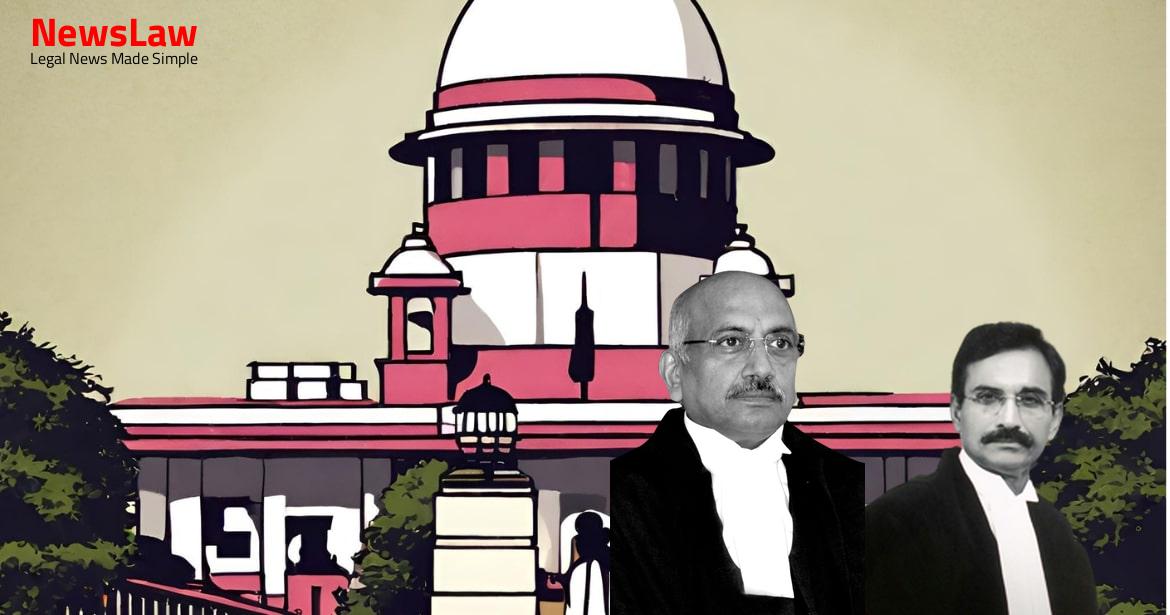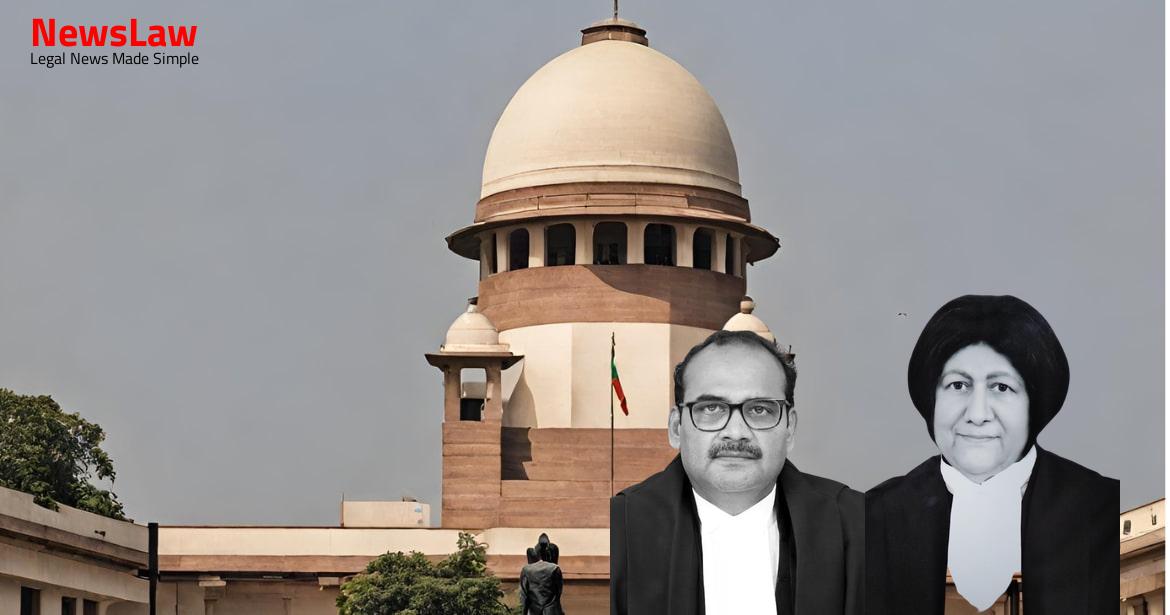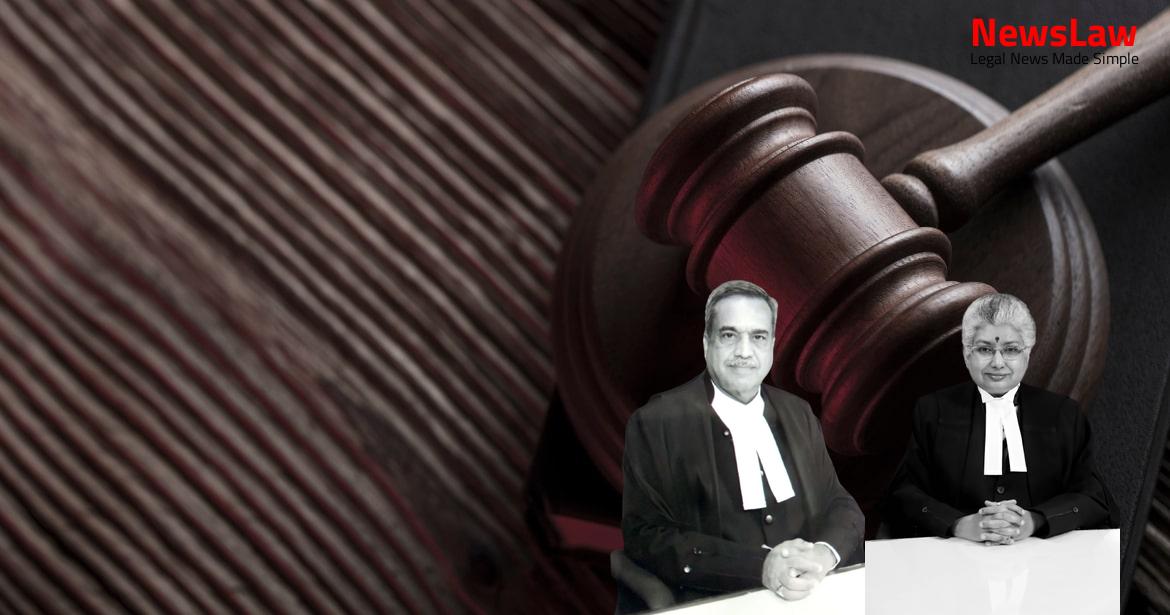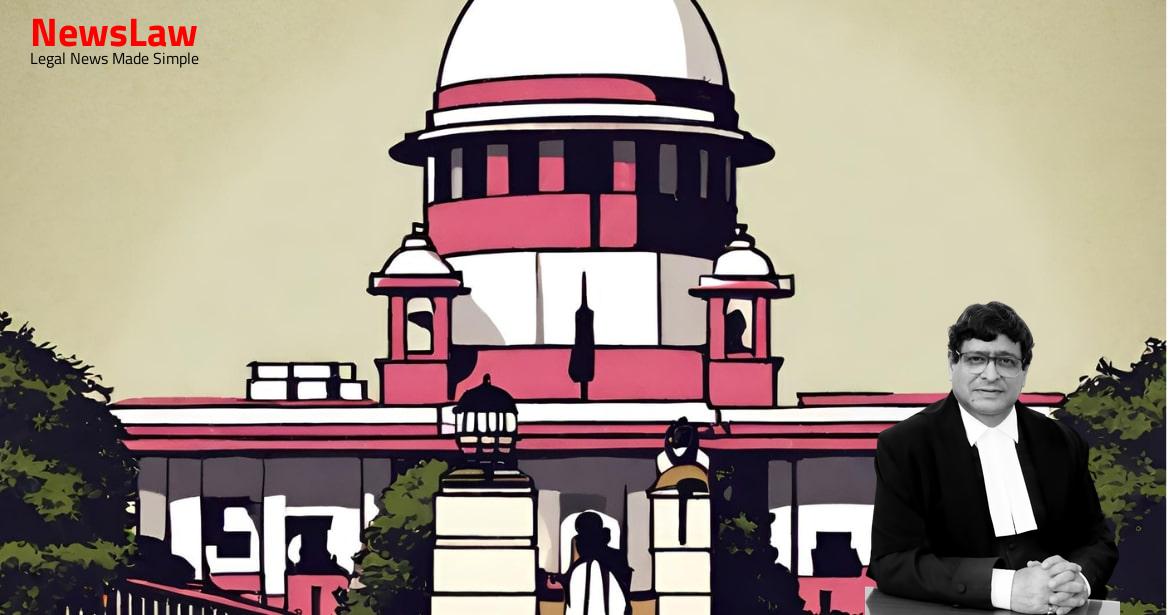In a significant case regarding disability pension entitlement, the Armed Forces Tribunal’s decisions from 2010 and 2011 were challenged before the Supreme Court of India. The case revolves around the denial of the service element of disability pension to an individual discharged from the Navy due to disability. The Tribunal’s rulings, Regulation 105B, and other legal aspects were scrutinized to determine the rightful benefits for the disabled petitioner.
Facts
- The challenge is to the orders passed by the Armed Forces Tribunal, Regional Bench, Kochi in 2010 and 2011 regarding entitlement to service element of disability pension.
- Applicant was discharged on 30 June 1978 after serving 10 years and 169 days.
- Granted a disability pension of 50% due to Viral Myocarditis post discharge.
- Despite the disability pension, the applicant was denied the service element of disability pension.
Also Read: Inheritance Dispute: Validity of Alleged Marriage between Sujathamma and Hanumanthappa
Arguments
- Regulation 105B of the Regulations applies if an individual is not invalided out of service due to disability and has not opted for continuation in the Armed Forces.
- Upon completion of the engagement period, a disability element is granted in addition to the service pension on completing 15 years of service.
- Initially, the Regulations specified 10 years of engagement with another 10 years as reservist, prompting the applicant to approach the Tribunal.
- Appellants argued that the applicant is not entitled to the service element of disability pension as he was released upon engagement expiry before completing 15 years of service and was not invalided due to disability.
- The Tribunal cited Regulation 101 and 107 to rule that the applicant, having been invalided due to disability, is entitled to a full disability pension, including the service element.
- A change in the engagement period was noted by the Government of India in 1976 to allow 10 years initially, with an option for re-engagement after 10 years.
- Since the applicant’s engagement period was around 10 years, he did not complete the required 15 years of service under Regulation 78 to receive the service element.
- Referring to a previous court judgment and regulations, it was argued that a service element is payable only after 15 years of service, except for those boarded out due to disability.
- The denial of the service element of pension to the applicant was questioned as he was not boarded out due to disability but due to engagement completion.
- The history and components of disability pension, including the service and disability elements, were explained by the learned Additional Solicitor General for the appellants.
- Regulation 107 of the Regulations deals with individuals who have not rendered sufficient service to qualify for service pension.
- The service element is granted in proportion to the individual’s completed years of qualifying service in relation to 15 years, but never less than two-thirds of the minimum service pension.
- Argument of the appellants would render Regulation 107 otiose.
- Disability pension has two elements: disability element and service element.
- Service pension and service element are synonymous.
- Regulation 105B clarifies that the benefit of disability element for those who completed their engagement period is in addition to the service pension.
- The provision was intended to grant benefits, not deny the service element.
Also Read: Seniority Determination in Uttarakhand Pey Jal Nigam: Regulation 23 vs Government Order
Analysis
- Regulation 105B aims to prevent dual payment of service element of disability pension when entitled to service pension as well.
- Without Regulation 105B, an individual would receive disability pension along with service pension.
- Individuals invalided out due to disability are entitled to disability pension under specific circumstances outlined in the Regulations.
- The interpretation should be harmonious and advance the intended remedy of the statute.
- Service element is distinct from service pension and should not be limited to completion of 15 years of service.
- Regulation 105B does not mention completion of qualifying service, so can’t be limited to such requirement.
- Service pension calculation in disability cases should follow Regulation 107 guidelines.
- Interpretation should be beneficial for individuals disabled in the line of duty.
- Casus Omissus principles apply, and service element is not restricted to minimum years of engagement.
- Different rules apply to disability cases related to flying or parachute jumping.
- Discharge was on account of disability attributable to or aggravated by Naval Service
- The disability was a key factor in the discharge decision
- The disability was linked to the individual’s service in the Navy
- Words cannot be added to a statute through judicial interpretation.
- The plain meaning of the language of regulations must be followed.
- Courts cannot fill lacunas in laws based on presumed legislative intentions.
- Additional words can only be supplied if words appear to have been accidentally omitted or to prevent existing words from losing all meaning.
- Words that have not been expressly enacted should not be easily read into statutes.
- The appeal was decided without reference to statutory regulations
- Reliance on a previous order was deemed unhelpful as it did not adhere to regulations
- The judgment in the case of T.S. Das was not considered applicable as it was not about the grant of disability pension
Also Read: The Case of Circumstantial Evidence: Conviction Upheld by Supreme Court of India
Decision
- Appellants directed to pay arrears of service element within four months
- No merit found in the appeals
- Appeals dismissed
Case Title: UNION OF INDIA Vs. V.R.NANUKUTTAN NAIR
Case Number: C.A. No.-004714-004715 / 2012



